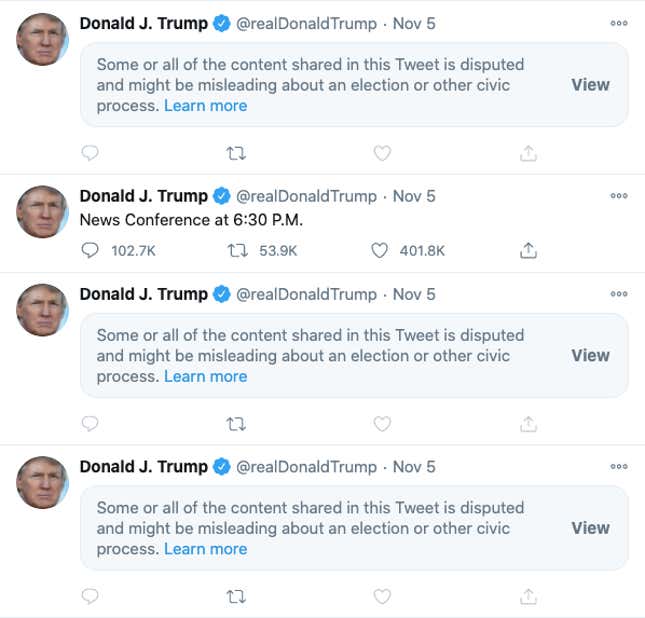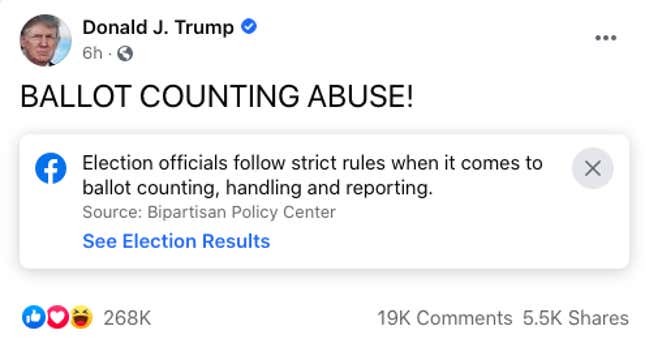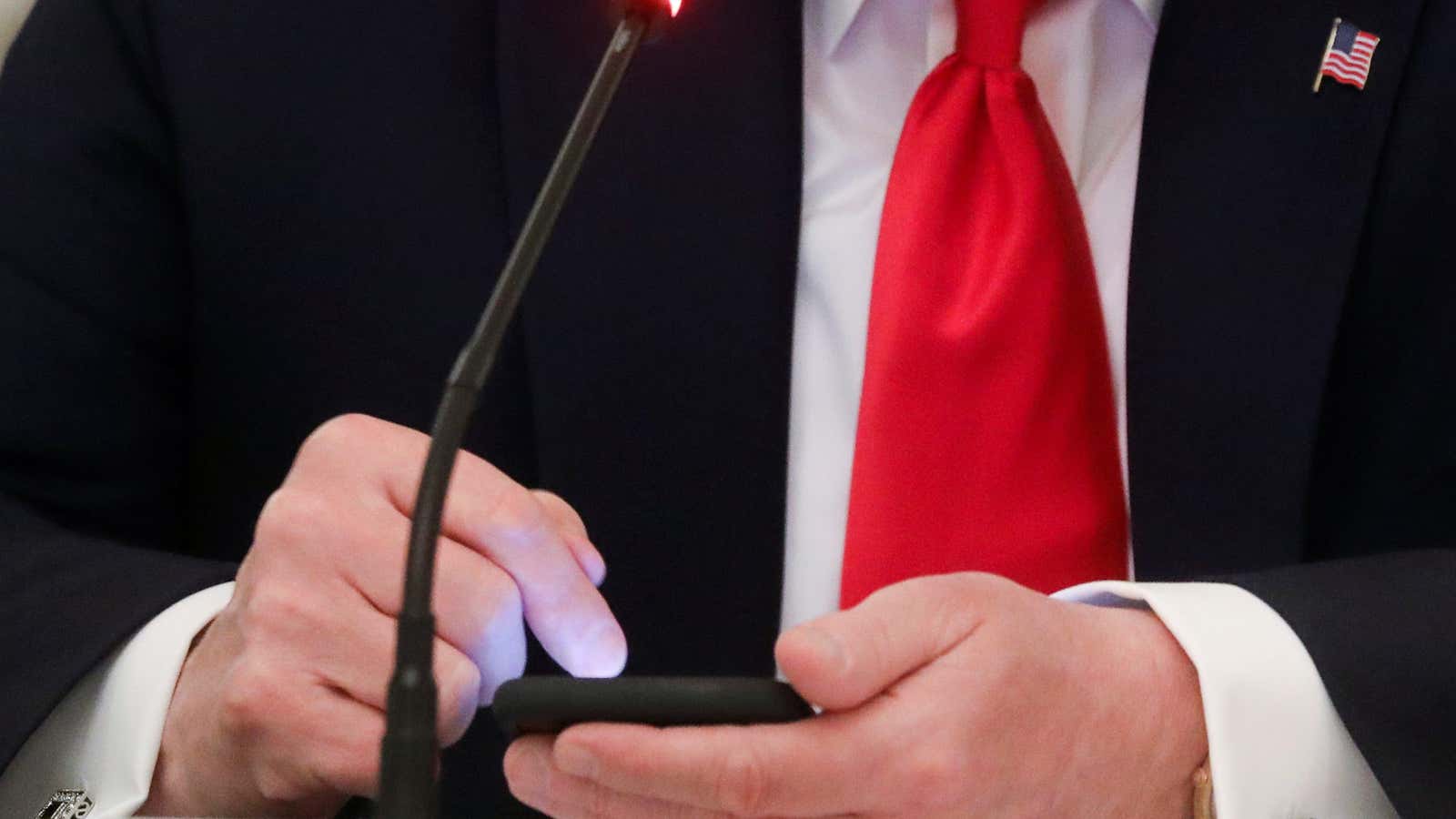@realDonaldTrump is tweeting on borrowed time.
The American president has repeatedly violated Twitter’s terms of service by posting a barrage of misinformation about US elections. For now, Twitter won’t delete any of his misleading posts or suspend Trump’s account because he is a sitting president. But that will change the moment he leaves office, according to Twitter.
Twitter’s policy states that elected and government officials are exempt from tweet takedowns, citing “the significant public interest in knowing and being able to discuss their actions and statements.” Instead, when political leaders violate the platform’s rules on spreading misinformation, it hides the offending tweets behind warning labels, limits their spread, and prevents people from liking, replying, or retweeting them without comment.
“This policy framework applies to current world leaders and candidates for office, and not private citizens when they no longer hold these positions,” a Twitter spokesperson said in a statement. In other words, at noon on Jan. 20, Trump will no longer be above the Twittersphere’s law.
Private citizen Trump will offer an illuminating case study in how social media companies handle an extremely online ex-head of state with a penchant for spreading disinformation. There are few precedents to draw from, although it’s worth noting that Twitter recently banned Steve Bannon, a former Trump White House official, after he called for the decapitation of top US infectious disease expert Anthony Fauci.
“If Donald Trump continues to do the kind of things he has done,” said Samuel Woolley, who heads propaganda research at the University of Texas at Austin’s Center for Media Engagement, “my guess is Twitter will not allow that, and that he might face similar repercussions to people like Steve Bannon who have been deplatformed.”
Over the past week, Twitter has been aggressively moderating Trump’s account. The company has flagged 39 of Trump’s tweets—or 40% of the missives Trump has fired off since polls closed on Nov. 3—for spreading baseless accusations of voter fraud, falsely claiming victory, and casting doubt on the legitimacy of mail-in ballots.

“The amount of times Twitter has had to flag Trump’s posts suggests to me that they’re beginning to take this much, much more seriously, that they’re more clearly enforcing their terms of service about disinformation…and that they seem to be gearing up for some stronger action on Trump when he leaves office,” Woolley said.
In the run-up to the election, Twitter updated its rules to specifically address lies “intended to undermine public confidence in an election or other civic process.” The company’s terms of service now explicitly bar “unverified information about election rigging,” “claiming victory before election results have been certified,” and any misinformation that “causes confusion about the laws and regulations of a civic process.” If someone who doesn’t hold political office violates these rules, their tweets could be deleted and their accounts suspended.
Meanwhile, on Facebook, Trump has posted many of the same false claims and met with a more mellow response. Where Twitter hides posts from view and blocks engagement, Facebook links to a page with news about election results.

“I think it’s likely that Facebook will also take a somewhat harsher stance against Trump than they have,” said Dipayan Ghosh, a former privacy and public policy advisor at Facebook who now heads Harvard’s digital platforms and democracy project. “The problem with Facebook is that it doesn’t take as harsh a stance, as a general matter, as Twitter does.”
While Twitter and YouTube immediately suspended Bannon after he graphically called for violence against Fauci, Facebook demurred, and only followed suit after several days of criticism. Ghosh suggested that a similar dynamic might play out if Trump makes some particularly incendiary online remarks after leaving office. “How is Facebook going to react?” he asked. “Are they going to give him the same protection they gave Steve Bannon? I hope not.”
